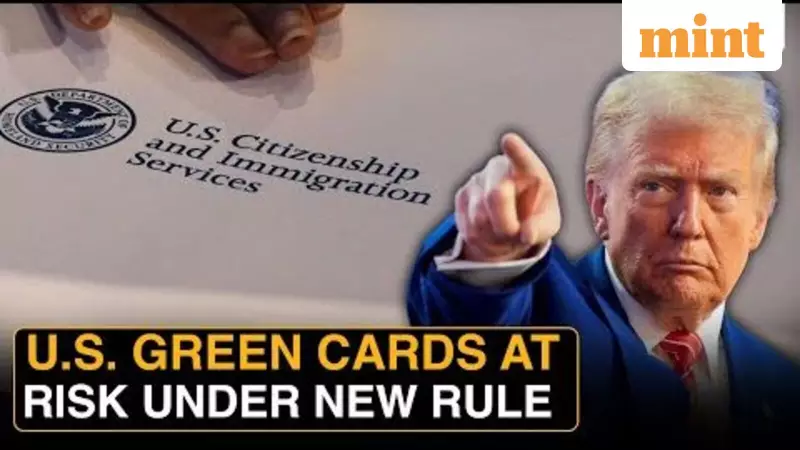
The United States Department of Homeland Security (DHS) has introduced a stringent new proposal that could fundamentally alter the landscape of American immigration. Announced on November 21, 2025, this revised public charge rule makes it significantly harder for immigrants to obtain a Green Card if they are deemed likely to rely on government support in the future.
What Does the New Public Charge Rule Entail?
The core of the new DHS proposal is a dramatic expansion of the factors considered when determining if an applicant is likely to become a public charge. Under the updated guidelines, immigration officials will now scrutinize an applicant's potential use of a wider range of benefits. This expanded screening now includes nutrition, housing, and healthcare programs.
Furthermore, the evaluation process will delve deeper into the personal circumstances of the applicant. Key areas that will come under the microscope include:
- Family health history, which could indicate future medical costs.
- A thorough assessment of personal finances and assets.
- Overall financial stability and prospects.
Critically, the DHS has also lowered the threshold for rejection. This means that even a marginal risk of an immigrant needing government aid in the future could be sufficient grounds for a Green Card denial.
Who Will Be Most Affected by This Visa Shake-Up?
The immediate and most profound impact of this policy shift will be felt by low-income applicants. Individuals and families with modest financial means, who might have previously qualified, now face a much steeper path to permanent residency. The rule places a heavier emphasis on financial self-sufficiency from the outset.
This change represents a significant visa shake-up, potentially blocking a pathway to the American dream for many. It signals a clear move by the US administration to prioritize immigrants who are perceived as financially independent and less likely to draw on the country's social safety nets.
The Road Ahead for US Immigration
The announcement made on November 21, 2025, marks a pivotal moment in US immigration policy. By broadening the definition of a public charge and intensifying the scrutiny of applicants' backgrounds, the DHS proposal sets a new, tougher standard. For countless aspiring immigrants, particularly those from lower-income backgrounds, the goal of securing a Green Card has just become considerably more challenging. The global community, especially those with ties to the United States, will be watching closely as this rule progresses through the regulatory process.





